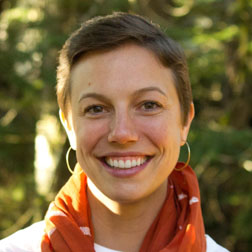One morning in 9th grade I showed up to school and none of my five closest girlfriends would speak to me — they wouldn’t for the rest of the year. The following year, one of them finally broke the stand off. The first thing I asked her was, “Why? Why did you drop me so coldly?” Hers were simple teenager’s words: “You always took the best boys and left us the worst.”
Even writing it now, over 30 years later, I have to admit I still feel the pang of hurt.
I’m imagining that this event is not a stranger to many of you, and in fact very familiar to many girls’ experiences. But this experience was so powerful for me that, in many ways, I’ve been trying to make sense of it my whole adult life. It was one of those events that, unbeknownst to me, has molded and formed many decisions that followed. My quest to understand what was really going on there has pushed me to want to gain new understandings about the ways women negotiate power and relationships. My conviction is that we can become more responsible to ourselves and more revealing to other women.
In Venezuela where I am from, women jokingly say that men have the last word: “Si, mi amor.” (This means “yes, my love”.) It’s funny and tongue in cheek, and also in some important ways, very true. The underlying cultural dynamic this acknowledges is that in Venezuelan culture (and I wonder if this is true in other cultures), we women often wield power, even if and when men are outwardly acknowledged as leaders. In my experience, some of the ways this happens is by 1) taking on the role of victim, 2) praising our male counterparts and giving them the experience that they hold power, or 3) criticizing other women and diminishing their power. And we do any or all of these while wielding our role to influence what happens, usually and often enough in implicit ways.
These implicit ways are often at heart containing some quality of manipulation and seduction. In fact there’s even a name for this manipulative, seductive feminine archetype in Venezuela: ‘Cuaima’, which means something like ‘cunning snake’. We could say that the cuaima is like the witch in the fairytale; she holds a power not many of us understand, and when she wields it without responsibility or care, other people suffer and (even she!) ends up being thrown in the boiling pot.
Now let me pause to clarify that I am not suggesting that all women in Venezuela are manipulative, cunning, seductive snakes. Or that all women in Venezuela or elsewhere are wielding power in exactly this way. In fact, my experience is that all women have access to their own unique way to get what they want, and the beauty is that we all do it differently. Some overtly and others covertly. Sometimes I go straight into conflict but at other times I wait and weigh in into other women’s influence in a group to collude with them and help me get what I want. Another powerful way some women access their power is by resisting—whether verbal or non-verbal, it’s very effective.
Over many years I’ve asked myself this question: Why might women do this? And so far, my answer is: I have a choice. I can decide which role to play – heroine, victim, martyr or witch. I’m consciously and constantly observing my unexamined beliefs, for instance, that I live in a patriarchal society where men hold the power, therefore I need men to survive and other women are a threat to my survival. This example may seem archaic or cliched, but I find myself playing this game with men and women in the shadows of my unconscious all the time. A leading man will have more influence than a leading woman. In corporations, a team of women will look for a strong man to leverage their power while a team of only men will most likely look for a woman to avoid being criticized for lack of diversity. I know first hand how cruel women can be with each other—I’ve been on both ends of the stick—so it’s not a stretch to believe that we’re a threat to each other. I want to believe that it doesn’t need to be this way.
Looking back now, I understand that the lesson my teenage girlfriends had given me was just that: the recognition that I was playing the cuaima/witch in our adolescent society without knowing I had a choice, without being responsible for my experience or knowing how much I really cared for them to express it with my actions. And it was true.
Through my teenage years, I exercised my cuaima role left and right. I could see the influence and power I gained with my sex-appeal. I learned how I could get more attention out of men and women by being aggressive with my demands but not revealing my needs. Negative attention still meant I got something out of it. I had power, yes. But a very certain kind of power. A shadowy power that was dependent on my ability to seduce, challenge, and captivate others. A power that wanted to lead but with no real understanding of others’ perspectives or needs. A power that was dependent on playing and manipulating the relational dynamics. A power that hid behind structures of socialized norms and would work and push its way through, negotiating unattended boundaries in the shadows of things left unsaid, rather than exercising a different kind of power by being transparent, honestly admitting to myself what I really wanted and disclosing my intentions.
Part of my growing up has included coming to terms with this ‘cuaima’ aspect of me and in turn learning where I have more choice, and becoming more responsible with my power and influence. In my twenties I decided I didn’t like this ‘cuaima’ role and wanted to be ‘good’ because ‘good’ is more socially acceptable and supported by others. Until then, relating with other women had been so difficult, I didn’t believe I had ‘good’ in me – that I really cared for them, or that they cared for me either. (You can imagine how that went. Awkward, like a lion in a lamb’s skin.)
But despite the awkwardness at first, what I learned was that I had choices; I could choose to come forward or not; to enact that seductress that would magnetize the attention of the person I wanted attention from; to use my power in hidden ways; or to put my desires and hopes out in the open and negotiate transparently. As I practiced with choosing my behavior, I trusted myself more and became more in touch with the part of me that sincerely cared for others.
Three years ago during my training in the Integral Facilitator Certificate Program, Diane Hamilton guided a circle of women in this exploration of Feminine Shadow, and it was all so familiar. Yes! Feminine Shadow. That’s what it’s called! What it seems to me all women are able to do consciously or unconsciously and the cuaima does so masterfully. All these hidden currents of unspoken communication and influence that were all too familiar to me now had a name. All these laws of gravity that can rule women’s interactions, but are never discussed. What we often do as women when we’re not consciously tending to what we love and want to protect. Encountering the Feminine Shadow, I was captivated and alert—and it was my opportunity to become more intimate with this shadowy territory of the “cuaima” at long last.
As a result of our training, I attempted to keep inviting this feminine shadow in. I began by initiating and facilitating a women’s group to explore more about this topic, experientially, and from the inside out. I had this vision: “To facilitate a more in-depth process about this feminine shadow” so that we could all better understand the qualities of this aspect of us. We did three four-week cycles in which we met online using video conferencing. Our conversations were unplanned, though lightly facilitated. They were raw, intimate, and unexpected.
And, I was so naive at the beginning of that journey. I thought it would be a clear and straightforward process; we’d get online together and reveal our shadows. Boom, done! But of course the reality of working with this group of intelligent, subtle women was very different. Perhaps because I was so eager to have these conversations I had been waiting to have with other women for so long, this is where I was most naive: that I thought it would be simple to jump into these conversations in creative ways without addressing power: the ways we like to access it, wield it and the beliefs that rule our unexamined habits of play.
The truth is, it wasn’t easy at all. Whenever I tried to take the lead, the playing field would get leveled with a chaos that invited all kinds of subversive as well as direct challenges to my efforts. We even named it once: we are striking at each other as we make way to a place in ”the pecking order” of the group. From an observer’s point of view, we probably looked like a friendly flock of seagulls, until one of us, usually me, decided to go for it. Chaos then ensued and the battle for the lead would take place, like the seagulls chanting, “Mine, mine, mine”, like in the movie “Finding Nemo”. This might have been easy if we all put what we wanted out in the open. But the feminine shadow I saw at play in this group was multifaceted. Each woman unique and different. Some used the power of critique to question who held power. Another used the power of withdrawing, while some just watched, and still others brought their rage unabashedly.
Perhaps it sounds chaotic, which isn’t untrue. But as I’ve studied the subtle ways women relate and negotiate power, I have discerned some patterns, rules, and structures that help me to understand and investigate these dynamics. Based on my experience, here are three things I’ve learned to remember when I’m not happy about the way things are going in my relationships with other women—at work, or elsewhere.
You have choice:
Hopefully you have a sense of what your preferences are for accessing and wielding your influence, and maybe even some insights about how this might be impacting others around you. For me, this happened the moment I realized that my challenging and confronting ways were not really helping me build trust and rapport in our group of women. In this instance, my choices were to be transparent about my preferences and/or empathizing more with the needs of others. I could invite a readiness by building trust and rapport, rather than pulling it out of them. I chose the latter but in hindsight I can see that I could’ve been more transparent, instead of trying to solve it all by myself in my internal control panel, and seeing how we could re-frame my challenges from being unsafe to exciting invitations.
Be responsible with your choices:
Having the knowledge of choice is a great first step. To stop and pause instead of reacting with our automatic responses opens up a whole new world of possibilities. To be responsible is to take another step in and acknowledge how we are active participants in any given situation. It is taking responsibility for our feelings, beliefs and thoughts and not blaming others for our experience. With responsibility and choice you become the leader and captain of your own voyage. When I was faced with so much resistance in my group, the feeling that was most available to me was self-pity. It was so easy to blame them for not supporting me and not playing nice. But the truth is that I learned much more when I had to turn the light around and look at my own shadow: I wanted to dominate the group, I wanted to be better than all of them, and I saw their resistance as weakness. Taking responsibility for my own hang ups and beliefs I learned to lead by deeply listening, to be inspired by difference and honor all truths.
Let your care lead you:
All this relating is happening in real-time. Knowing you have a choice and owning up to your experience opens your horizons. But what happens in the moment when it’s beyond our control? We just hope that something of what we’ve been learning and reading about holds up when the familiar reactive patterns show up. One thing I noticed that held me steady in the most harrowing moments was the intention to stay connected to my care: to other women’s needs and experience, to my own experience, and our desire to shine light to this shadow aspect of our patterning and beliefs. My care gave me courage, patience, and insight in moments I thought I/we were lost and relationships were being severed. I hung on, stayed and led with my care as best I could. I held it in my heart and brought it forth in difficult situations or when in conflict with another woman. I’m not going to lie, it takes becoming very vulnerable to show care in moments other parts of you want to fight, run away or protect. But this is the flame that lights my way through the dark in the mysterious spaces of the feminine shadow.
I’m curious what of this story was familiar to you, and what kind of woman you’ve become through your own experience? Is there a place in your life where you can invite more choice or where you can take more responsibility for your own experience?
Some conversations are bigger than others but there’s only one that is yours to participate in today, tending to what you love with more choice and responsibility. I’m grateful to my friend back in 9th grade who took the courage to speak to me again. And to every friend who has taken that step to speak up for what they want to protect because under the rain of their power I’m emboldened to do the same. Reach out to me if you have questions or would like my support. I am here for you if you need a woman to guide you through.
Maria Bailey is a Certified Integral Facilitator and Integral Coach of Optimal Relational Dynamics. She is a talented communicator drawn to finding the emotional heart in all situations. She is well-versed in Feminine Leadership and shadow dynamics as well as cross-cultural and diversity issues. You can find out more about her work here.



4 thoughts on “The Truth About Women and Power”
This was one of the best articles I’ve read about this subject matter, ever! I appreciated the inclusion of the Venezuelan vernacular and references to Shadow Femininity. Very well done and received. Thank you!
Thank you for this beautifully written prose. I am deep in contemplation about feminine shadow and how it shows up within the sisterhood, and in the yin side of men too. The seduction at the cost of the care and transparency, the undermining, the story you tell about your 9 year old self, all these I’ve experienced in my small community–how we betray one another in the night. I have risked the role of the transparent, vulnerable one and I have been burned in ways that threatened my family, my children. I have been called whore behind closed doors and in the open air from children’s mothers from their own mothers jealousy and projections.
How do we stay in this vulnerable conversation when so many are not willing to look at where they act from? I have stayed too long in both female and male relationships and I want to believe there is a way to let shadow play and emerge but am often the screen for that in the ways you were above. As a writer and sex therapist, I am always playing in these curious fields. Your words helped me wander a while around in them not feeling so alone. Blessings and gratitude for the conversation.
Thank you so much for this article!!
Glad to hear you appreciated it! 🙂